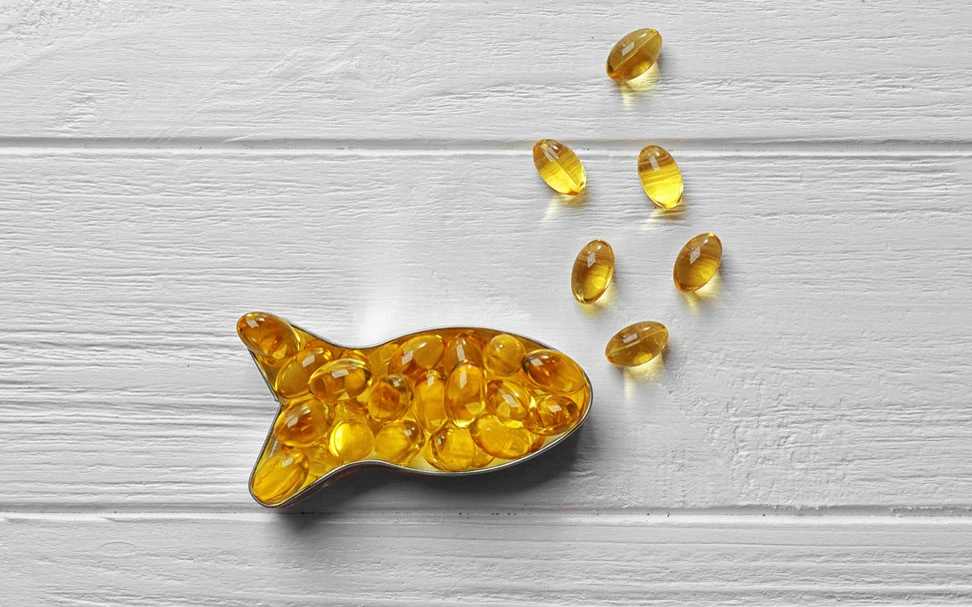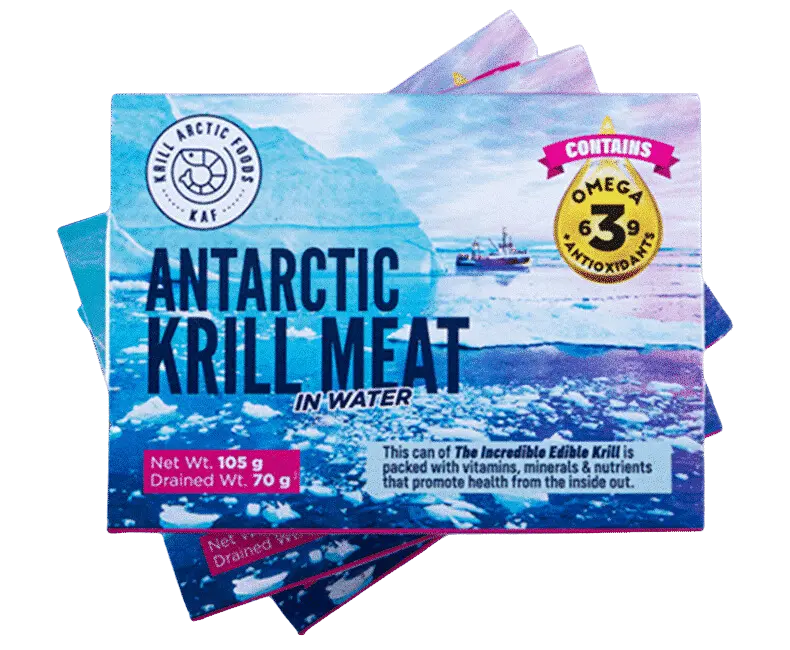- Home /
- Krill Oil And Fish Oil- What’s The Difference?

Posted On:December 12th, 2022
Krill Oil And Fish Oil- What’s The Difference?
Fish oil primarily comes from fatty fish varieties like salmon, mackerel, etc., and is one of the most beneficial supplements for human health because of its Omega-3 and anti-inflammatory properties.
People consume fish oil for various reasons. It contains eicosapentaenoic acid (EPA) and docosahexaenoic acid (DHA), which make it highly valuable to human health. Fish oil is good for the eyes and cardiovascular health; however, other alternatives also offer these benefits, including krill oil.
Krill oil is also very high in DHA and EPA, offering plenty of health benefits. Which one is better, Krill oil or fish oil? Let’s discuss the benefits of krill oil vs fish oil and the differences to help you make the right decision.
Krill Oil vs. Fish Oil
Krill oil and fish oil. Both are rich sources of omega-3 fatty acids, renowned for their numerous health benefits. However, understanding the distinctions between krill oil and fish oil is crucial for making informed choices about their consumption. However, antarctic krill oil is considered to be a better choice than fish oil by many experts due to various reasons.
Higher Absorption
Unlike krill oil, fish oil may have high quantities of DHA and EPA, but studies suggest that the human body may not absorb it all. The main reason is that fish have fatty acids in the triglycerides. In contrast, krill oil has fatty acids in the form of phospholipids, which offer higher absorption and effectiveness in the body.
A study suggests that participants who chose krill oil over fish oil showed higher absorption after 72 hours. Another study indicates that users who took two-thirds of krill oil compared to daily fish oil quantity showed the same health improvements as the other group. This confirms the higher effectiveness of krill oil.
Higher Antioxidants
Antioxidants play a vital role in the human body as they help manage stress by reducing oxidative stress. This is cell damage caused by radical cells. Krill oil has high levels of astaxanthin, which isn’t present in most fish oils.
While the full applications of these compounds are still unknown, the compound helps with better heart health. A study indicated that astaxanthin increases the good cholesterol or DHL in the body and helps improve human cardiovascular health. It may also increase the lipids in the body slightly. This means that krill oil can have the same effects as fish oil but in smaller quantities.
Risk Of Contamination
Krill oil has a lower risk of contamination by heavy metals and other pollutants because krill are at the bottom of the food chain and have a shorter lifespan than fish.
Milder Odor
Krill oil has a milder taste and odor than fish oil, making it a more palatable option for those sensitive to the fishy taste or smell.
Sustainability And Environmental Considerations
Sustainability is a crucial factor when considering marine-based supplements. Krill is supposed to be more abundant and has a higher reproductive rate than certain fish species. Additionally, krill fishing in certain regions is managed with krill sustainability in mind. However, conscientious sourcing is essential for krill and fish oil to minimize the impact on marine ecosystems.
Potential Side Effects And Allergies
While krill and fish oils are generally considered safe for most people, some individuals may experience side effects such as gastrointestinal discomfort or a fishy aftertaste. Krill allergies are rare but can occur. It’s advisable to consult with your doctor before incorporating these supplements, especially for individuals with pre-existing health conditions or allergies.
Benefits Of Krill Oil
- Rich in Omega-3 Fatty Acids: Krill oil is a valuable source of omega-3 fatty acids, including EPA (eicosapentaenoic acid) and DHA (docosahexaenoic acid), essential for heart and brain health.
- Phospholipid Structure: The omega-3s in krill oil are in the form of phospholipids, enhancing their absorption and potentially increasing bioavailability compared to fish oil.
- Antioxidant Content: Astaxanthin, a potent antioxidant with potential anti-inflammatory properties, contributes to the stability of krill oil.
- Potential Cardiovascular Benefits: This may support cardiovascular health by promoting healthy cholesterol levels, reducing high cholesterol signs, and reducing inflammation.
- Reduced Fishy Aftertaste: The phospholipid structure may reduce the likelihood of a fishy aftertaste commonly associated with fish oil supplements.
- Sustainability: Krill is considered more abundant and has a higher reproductive rate than certain fish species, contributing to a more sustainable source of omega-3s.
Benefits Of Fish Oil
- High Omega-3 Content: Fish oil is a well-known and potent source of omega-3 fatty acids, particularly EPA and DHA.
- Cardiovascular Health: Regular fish oil consumption helps lower triglyceride levels, reduce blood pressure, and support overall heart health.
- Brain Function: DHA, a component of fish oil, is crucial for brain development and function, potentially supporting cognitive health.
- Joint Health: Omega-3 fatty acids in fish oil may have anti-inflammatory properties, benefiting joint health and potentially alleviating arthritis symptoms.
- Mood and Mental Health: Some studies suggest that omega-3s in fish oil may positively affect mood and mental health, potentially reducing symptoms of depression and anxiety.
- Eye Health: DHA is a major retina component, and sufficient intake may support eye health, particularly in preventing age-related macular degeneration (AMD).
- Inflammatory Conditions: Fish oil’s anti-inflammatory properties may benefit individuals with inflammatory conditions such as rheumatoid arthritis or inflammatory bowel diseases.
Bottom Line
Both fish oil vs krill oil have their benefits, but most studies indicate that consuming krill oil can help meet nutritional needs, which makes it an ideal dietary supplement. Given its several health benefits, people also add krill meat.
As a new item in the United States, many individuals must be aware that Krill meat exists for human consumption. Krill Arctic Foods is the first in the U.S. to make krill meat available to you. Head to our website www.krillarcticfoods.com, to learn more about the incredible edible krill and how you can get yours today.
Frequently Asked Questions
Can I Take Both Krill Oil And Fish Oil Together?
Yes, you can take both supplements together if desired. However, it’s essential to consider total omega-3 intake and consult a healthcare professional to avoid exceeding recommended dosages.
Which Supplement Is More Environmentally Sustainable, Krill Oil Or Fish Oil?
Krill is considered more abundant and has a higher reproductive rate than certain fish species, making krill oil a potentially more sustainable source of omega-3s. However, responsible sourcing is crucial for both supplements.
Sources
https://www.healthline.com/nutrition/krill-oil-vs-fish-oil#Krill-Oil-Health-Benefits
https://www.medicalnewstoday.com/articles/321897
https://www.drugs.com/medical-answers/krill-oil-vs-fish-oil-difference-3040407/
Related Posts
Shop
Products You May Like
Lorem Ipsum is simply dummy text of the printing and typesetting industry
m Ipsum is simply dummy text of the printing and typesetting industry.








